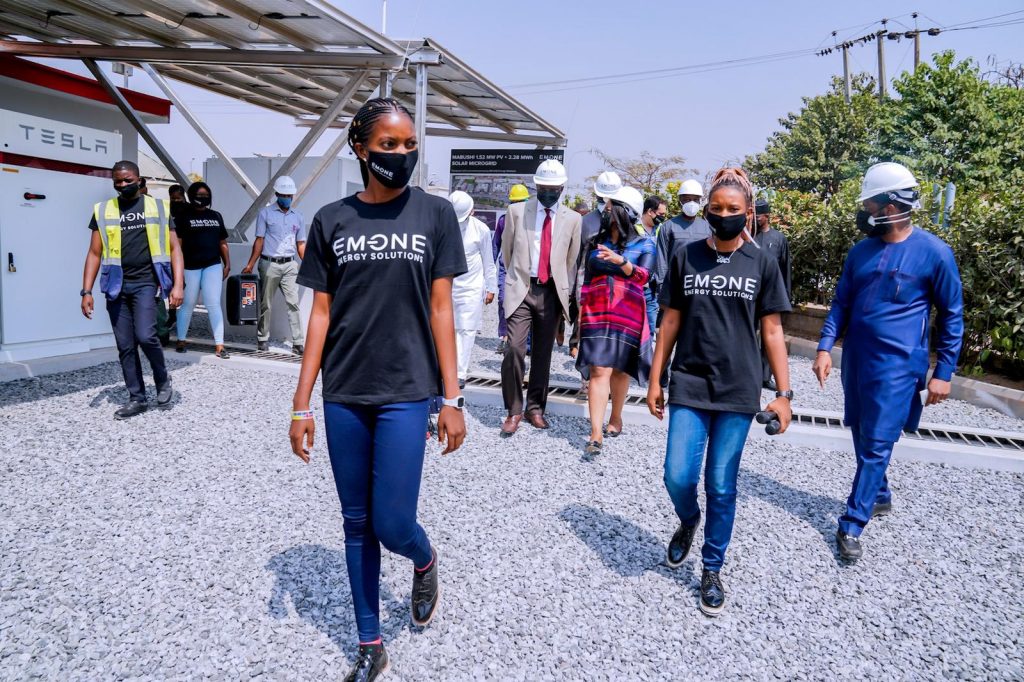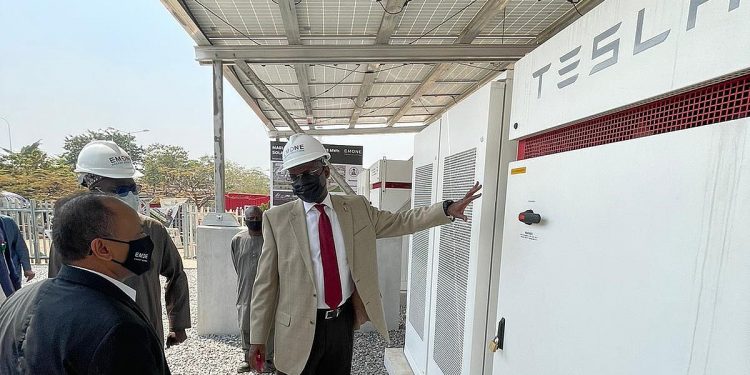The Federal Government has taken delivery of Tesla Powerpack batteries in its efforts to provide sustainable energy for the capital’s government buildings. The project, which involves a 1.52 MW/2.29 MWh solar hybrid system paired with industrial-grade Tesla batteries, is aimed at reducing the capital’s dependency on backup gas and diesel-powered generators.

The solar + Powerpack installation was led by an all-female team of EM-ONE engineers who closely worked with the Tesla team to ensure that the project is built accordingly. A number of Nigerian engineers also traveled to the Netherlands to get trained by the Tesla team.
Observers say the Powerpack system in the Nigerian capital may only be a small step towards sustainability and that however these steps matter when ushering in a transition to renewable energy. Considering that Nigeria is a market for backup generators, perhaps even residential battery units such as the Tesla Powerwall and grid-scale batteries such as the Megapack could find a home in the Sub-Saharan West African region.
Observers say the Powerpack system in the Nigerian capital may only be a small step towards sustainability and that however these steps matter when ushering in a transition to renewable energy. Considering that Nigeria is a market for backup generators, perhaps even residential battery units such as the Tesla Powerwall and grid-scale batteries such as the Megapack could find a home in the Sub-Saharan West African region.
Funded by the Federal Government, the project also serves a notable role in efforts of the government to move the country away from fossil fuel-powered solutions. Nigeria’s use of fossil fuels was highlighted in a study published by the International Finance Corporation in 2019.
In the study, the World Bank Group remarked that Nigeria is home to a large-scale backup generator market. According to estimates from the Nigeria Labor Congress, as much as $17 billion is spent each year on industrial-grade diesel and gas generators.
These machines are used at institutional, commercial, and large housing sites. But this is not all. Nigeria is also known for its widespread use of small gasoline generators. Machines such as two-stroke generators that burn a mixture of gasoline and lubricating oil have been popular in the country, despite the government’s efforts against them due to pollution concerns.
Solar energy is radiant light and heat from the Sun that is harnessed using a range of ever-evolving technologies such as solar heating, photovoltaics, solar thermal energy, solar architecture, molten salt power plants and artificial photosynthesis. The Sun’s energy is in the form of solar radiation. And Solar radiation makes the production of solar electricity possible.















